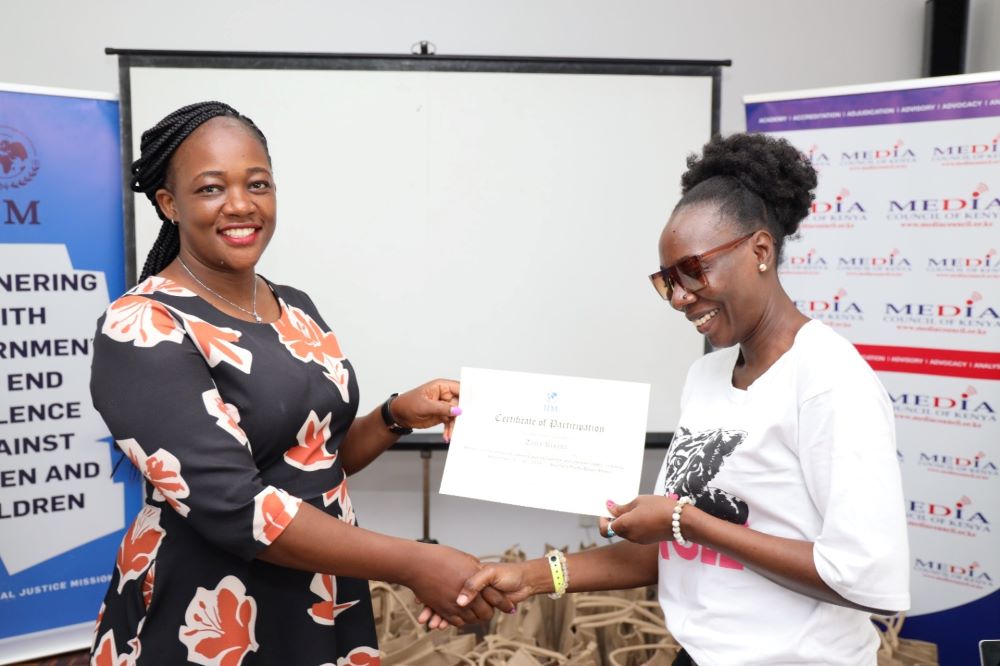
The Media Council of Kenya (MCK) has urged media organisations to adopt internal gender-sensitive policies to shape editorial choices regarding gender-related coverage.
MCK Manager for Press Freedom, Safety, and Advocacy Ms Dinnah Ondari urged journalists to self-introspect and analyse the impact of their internal environment on the quality of coverage rendered to issues concerning gender, noting that a gender-responsive newsroom creates an inclusive work environment for all employees, ensuring that there are equal opportunities for both men and women in leadership and reporting roles.
“Equity in the workplace often translates to a more gender-aware coverage, as the perspectives of both genders are incorporated into editorial decisions”, she said during an event organised by the International Justice Mission (IJM) in partnership with MCK, in Diani, Kwale County
Ms Ondari pointed out that some of the clauses in Code of Conduct for the Practice of Journalism in Kenya address the coverage of gender balance, protection of children, and sexual survivors.
“The Code of Conduct is clear on the protection and coverage of children and sexual violence survivors. Journalists should observe these ethical guidelines in protecting the rights and interests of such vulnerable groups even as they publish stories of public interest.”
She urged journalists to shed light on gender bias in newsrooms and challenge prevailing stereotypes, drawing attention to a survey conducted by the Council that showcased instances of gender bias and sexual harassment, with a focus on women.
Additionally, she mentioned that journalists can utilise access to information as a tool for writing stories on gender-based violence (GBV) to promote awareness, advocate for reform, and provide support to survivors.
“By using a wide range of data, journalists can craft stories that not only document the prevalence of gender-based violence but also scrutinise the systemic and cultural barriers preventing its eradication. Through this approach, they contribute to policy advocacy, public education, and empowerment of survivors”, she stated.